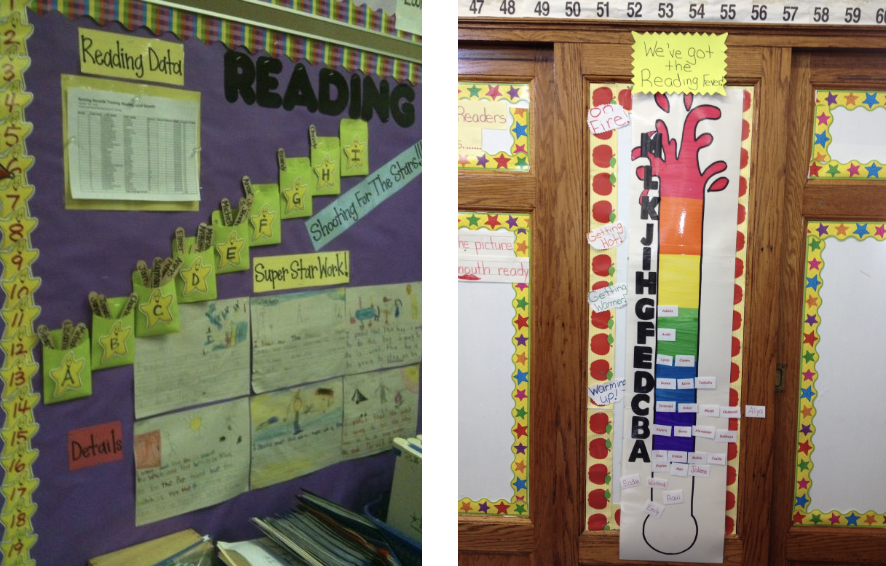Last month I blogged about reading levels and shared some ideas on when to level, where to level (a leveled literacy library, but perhaps not a classroom library), and how to use those levels as a tool for student literacy growth. The blog post received a few comments and sparked even more dialogue on social media. I welcome the conversation. We need to be talking more about how our best intentions can sometimes lead to unintended consequences for the students we seek to serve.
Take for example, the images I found on Pinterest as I was preparing a webinar on how to effectively use a brand new leveled resource library in an elementary school on the west coast.
 I do not doubt for a second that the educators who worked hard to complete these bulletin boards care deeply for students, are listening to those who say we should set goals and chart progress, and are working diligently to grow the literacy skills of students. However, what messages might the students who are “cold” or at the bottom of the staircase “shooting for the stars” be getting? We have a tremendous responsibility to protect and foster the positive identities our readers hold. When we make missteps like these, we can impact that identity in ways we never meant.
I do not doubt for a second that the educators who worked hard to complete these bulletin boards care deeply for students, are listening to those who say we should set goals and chart progress, and are working diligently to grow the literacy skills of students. However, what messages might the students who are “cold” or at the bottom of the staircase “shooting for the stars” be getting? We have a tremendous responsibility to protect and foster the positive identities our readers hold. When we make missteps like these, we can impact that identity in ways we never meant.
Kiera Parrott had a chance to interview Irene Fountas and Gay Su Pinnell, who developed one of the most widely used systems for leveling texts, in a recent article for School Library Journal titled, “Fountas and Pinnell say Librarians Should Guide Readers by Interest, Not Levels.” These researchers are clear in their message that levels are intended as a “teacher’s tool, not a child’s label.” In this SLJ interview, Fountas and Pinnell give further clarification on why the F&P system was created, how the system is being misused, how to organize the school and classroom libraries, how to communicate with students and parents about reading progress without relying on levels, and how to work together as a team. The article is helpful. I encourage you to take a look.
Reference: Parrott, K. (Oct. 12, 2017). Fountas and Pinnell say librarians should guide readers by interest, not level. School Library Journal. Retrieved 13 October 2017 from http://www.slj.com/2017/10/literacy/fountas-pinnell-say-librarians-guide-readers-interest-not-level/#_






